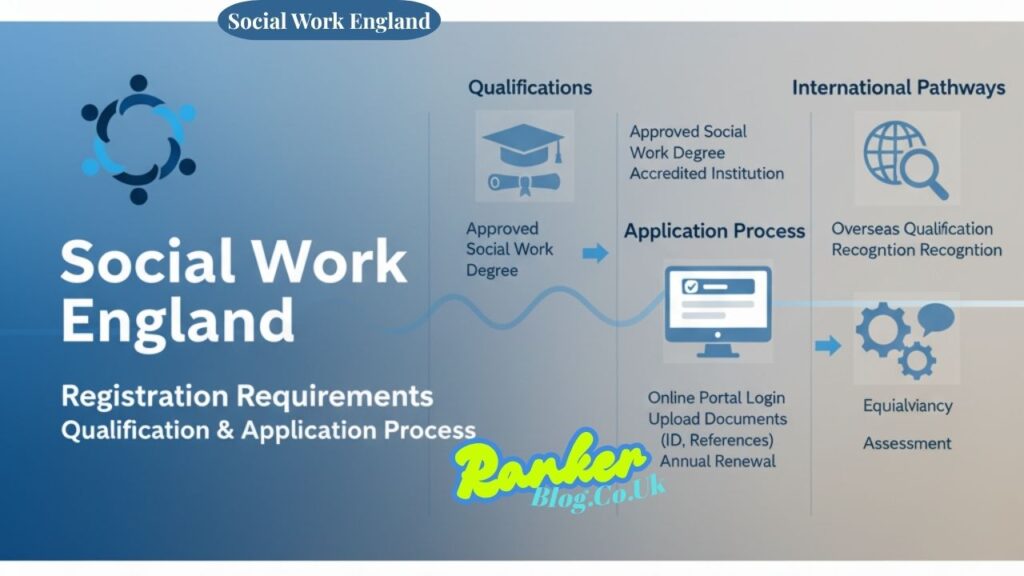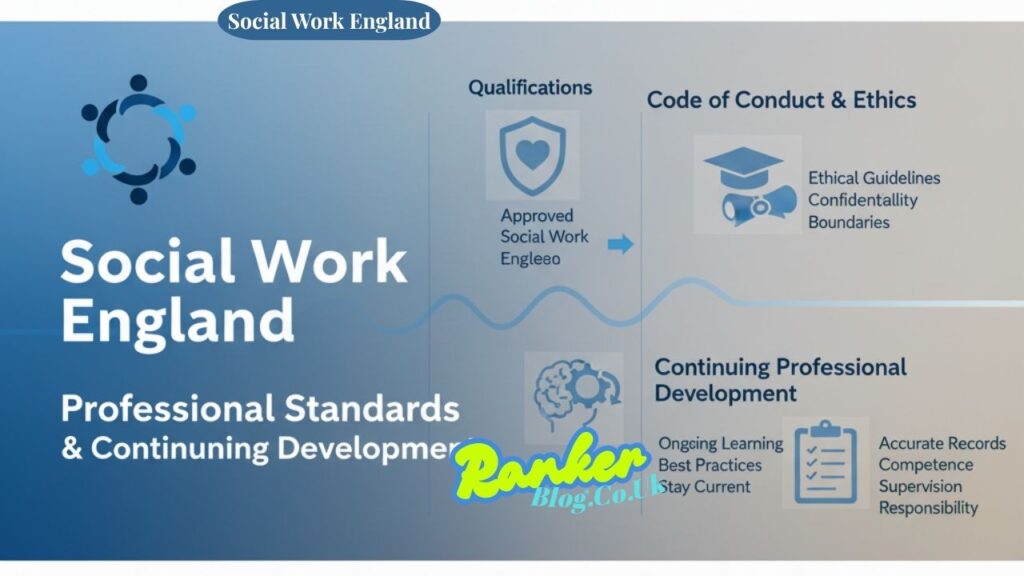Introduction to Social Work England
Social Work England serves as the specialist regulator for the social work profession across the country. Established in 2019, this independent organisation took over regulatory responsibilities from the Health and Care Professions Council (HCPC), marking a significant milestone in the profession’s development. The creation of this dedicated regulator demonstrates the government’s commitment to elevating professional standards and ensuring public protection.
The organisation’s core mission revolves around maintaining high standards within the profession while supporting practitioners in delivering excellent care to vulnerable individuals and communities. Through robust regulation and continuous professional development initiatives, the regulator ensures that every registered practitioner meets consistent quality benchmarks.
Key Functions and Responsibilities
The regulatory body carries out several essential functions that shape the profession. Registration remains one of its primary responsibilities, ensuring that only qualified individuals can practice legally. The organisation maintains the Social Work England register, which serves as a public record of all approved practitioners.
Beyond registration, the regulator establishes and maintains professional standards that guide practice across various settings. These standards provide clear expectations about conduct, competence, and ethical behaviour. The organisation also approves education and training programs, ensuring that future professionals receive high-quality preparation for their careers.
Fitness to practice procedures form another crucial responsibility. When concerns arise about a practitioner’s conduct or competence, the organisation investigates thoroughly and takes appropriate action to protect the public. Professional conduct oversight ensures accountability and maintains public trust in the profession.
Registration Requirements

Anyone wishing to practice legally must complete Social Work England registration through a structured application process. The eligibility criteria are clearly defined to maintain professional standards and public safety.
Qualification Requirements
Applicants must hold an approved social work degree or equivalent qualification recognised by the regulator. This ensures that all practitioners possess the fundamental knowledge and skills necessary for effective practice. The qualification must come from an accredited institution that meets the organisation’s educational standards.
Application Process and Documentation
The Social Work England login portal provides access to the application system where candidates submit the required documentation. Applicants need to provide proof of qualifications, identity verification, character references, and evidence of English language proficiency if applicable. The process includes thorough checks to verify credentials and ensure applicants meet all requirements.
Registration renewal occurs annually, requiring practitioners to confirm their continuing fitness to practice and complete required professional development activities. This renewal process maintains an up-to-date register of qualified professionals.
International Pathways
The organisation has established pathways for international social workers seeking registration. These recognise overseas qualifications while ensuring that international applicants meet equivalent standards. The assessment process may include additional training or examinations to address any gaps in preparation.
Professional Standards

The Professional Standards document serves as the cornerstone of practice expectations. This comprehensive framework outlines what practitioners must do to maintain registration and deliver safe, effective services.
Code of Conduct and Ethics
The code of conduct provides clear ethical guidelines covering relationships with service users, professional boundaries, confidentiality, and decision-making. These principles ensure that practitioners maintain integrity and prioritise the welfare of those they serve.
Continuing professional development requirements mandate that registered professionals engage in ongoing learning throughout their careers. This commitment to lifelong learning helps practitioners stay current with best practices, research findings, and evolving societal needs.
Practice emphasises accountability at every level. Practitioners must maintain accurate records, work within their competence, seek supervision when needed, and take responsibility for their professional decisions.
Education and Training

Quality education forms the foundation of competent practice. The regulatory body approves social work education programs at universities and training organisations, ensuring consistent standards across all providers.
The approval process examines curriculum content, teaching quality, assessment methods, and practice placement opportunities. Programs must demonstrate that graduates possess the knowledge, skills, and values required for contemporary practice.
Quality assurance mechanisms include regular reviews of approved programs, feedback from students and practice educators, and assessment of graduate outcomes. This ongoing oversight maintains educational excellence and ensures that programs adapt to changing practice demands.
Student social workers must meet specific requirements during their training, including supervised practice placements where they apply theoretical knowledge in real-world settings. These placements provide essential hands-on experience under qualified supervision.
Understanding What Social Workers Do
Many people wonder what social workers do and how they apply their skills in daily practice. A social worker supports individuals, families, and communities facing various challenges. Their work spans multiple settings, including hospitals, schools, local authorities, mental health services, and voluntary organisations.
Daily responsibilities vary depending on the setting but typically include assessing needs, developing support plans, coordinating services, advocating for clients, and providing direct interventions. Practitioners work with diverse populations, from children in need of protection to older adults requiring care services.
The role demands exceptional communication skills, emotional resilience, analytical thinking, and cultural sensitivity. Practitioners must navigate complex situations, balance competing needs, and make difficult decisions that impact people’s lives.
How to Become a Social Worker
For those interested in how to become a social worker, the pathway involves several straightforward steps. First, individuals must obtain an undergraduate degree in social work from an approved program. These three-year programs combine academic study with supervised practice placements.
Alternatively, postgraduate routes exist for those who already hold a degree in another subject. Doctoral programs typically last two years and provide intensive preparation for professional practice.
After completing an approved qualification, graduates must apply for registration before they can practice legally. Once registered, newly qualified practitioners often participate in assessed and supported year-in-employment schemes that provide additional support during the transition to independent practice.
Social Work Jobs in London, England, and Career Opportunities
Social work jobs in London, England, offer diverse opportunities across numerous sectors. London’s size and diversity create demand for practitioners in various specialities, including children’s services, adult social care, mental health, substance misuse, and criminal justice.
Employment opportunities exist in local authority departments, NHS trusts, schools, voluntary organisations, and private agencies. The capital city’s multicultural population requires practitioners with cultural competence and language skills to serve diverse communities effectively.
Career progression routes include senior practitioner roles, team management, service management, and strategic leadership positions. Some practitioners specialise in particular areas such as adoption, mental health, or safeguarding, while others move into education, research, or policy development.
Social Worker Salary Expectations
The social worker’s salary varies depending on experience, location, and sector. Newly qualified practitioners typically earn between £28,000 and £32,000 annually, though London positions often include additional allowances reflecting the higher cost of living.
Experienced practitioners can earn between £35,000 and £45,000, while senior practitioners and team managers may receive £45,000 to £55,000. Strategic leadership positions command higher salaries, potentially exceeding £60,000 in organisations.
Salary levels reflect the profession’s demanding nature and the significant responsibility practitioners carry. Many employers offer additional benefits, including pension schemes, professional development funding, and flexible working arrangements.
Fitness to Practice
The fitness to practice process protects the public by addressing concerns about practitioners’ conduct or competence. Anyone can raise concerns through the organisation’s reporting mechanism, including employers, service users, colleagues, and members of the public.
When concerns are reported, the organisation conducts thorough investigations to gather evidence and understand what happened. The investigation process is fair, transparent, and follows established procedures that protect both public safety and practitioner rights.
If investigations reveal serious concerns, cases proceed to formal hearings where independent panels examine evidence and hear from witnesses. These panels can impose various outcomes, including warnings, conditions on practice, suspension from the register, or permanent removal in the most serious cases.
Public protection remains the primary focus throughout the fitness to practice process. All decisions should prioritise safeguarding vulnerable individuals while ensuring fairness to practitioners facing allegations.
Support for Social Workers
The regulatory body recognises that supporting practitioners benefits both professionals and the people they serve. Various resources and guidance materials help practitioners navigate complex situations and maintain high standards.
Professional development opportunities include workshops, webinars, and conferences that address emerging practice issues. These learning opportunities help practitioners stay current and connect with colleagues facing similar challenges.
Mental health and well-being initiatives acknowledge the emotional demands of the profession. Resources addressing stress management, resilience building, and self-care help practitioners maintain their own well-being while caring for others.
Practice support tools provide practical assistance with everyday challenges. These resources include guidance documents, case studies, and templates that help practitioners apply standards in real-world situations.
Stakeholder Engagement
Effective regulation requires collaboration with multiple stakeholders. The organisation works closely with employers to understand workforce challenges and ensure that regulatory requirements support rather than hinder good practice.
Engagement with service users and carers ensures that regulation reflects the perspectives of those receiving services. Their insights inform standards development, fitness to practice decisions, and strategic priorities.
Partnership with other regulatory bodies creates consistency across the health and social care sectors. Collaboration with organisations regulating nurses, doctors, and allied health professionals promotes integrated approaches to public protection.
Policy influence and sector involvement position the regulator as a key voice in debates about social care reform. The organisation contributes evidence and expertise to discussions shaping the profession’s future.
Current Challenges and Future Directions
The profession faces significant workforce development challenges, including recruitment difficulties, retention concerns, and workload pressures. The regulatory body works with partners to address these issues while maintaining standards that protect the public.
Adapting to the changing social care landscape requires ongoing evolution of regulatory approaches. Demographic shifts, technological advances, and changing societal expectations demand flexible, responsive regulation that supports innovation while managing risks.
Innovation in regulation includes exploring new approaches to education approval, fitness to practice, and professional development. The organisation seeks to balance robust oversight with proportionate, efficient processes that serve all stakeholders effectively.
Strategic priorities for the upcoming years include strengthening partnerships, enhancing support for practitioners, and promoting diversity within the profession. These initiatives aim to build a resilient, capable workforce that meets contemporary care needs.
Conclusion
Social Work England has established itself as an effective specialist regulator since its creation. Through comprehensive registration processes, clear professional standards, and robust fitness to practice procedures, the organisation protects the public while supporting practitioners.
The impact on the profession has been significant, raising the profile of professional practice and emphasising the importance of continuous development. Regulation plays a vital role in safeguarding vulnerable individuals and maintaining public confidence in services.
The future outlook for regulation appears positive, with ongoing commitment to improvement and adaptation. As societal needs evolve and the profession develops, the regulatory framework will continue supporting high-quality practice that makes positive differences in people’s lives.
For those considering entering the profession or seeking registration, understanding the regulatory landscape is essential. The pathway may be demanding, but the rewards of making meaningful contributions to individuals and communities make it a fulfilling career choice.
Also Read: Crest Whitening Strips for Coffee & Tea Drinkers: What You Should Know

